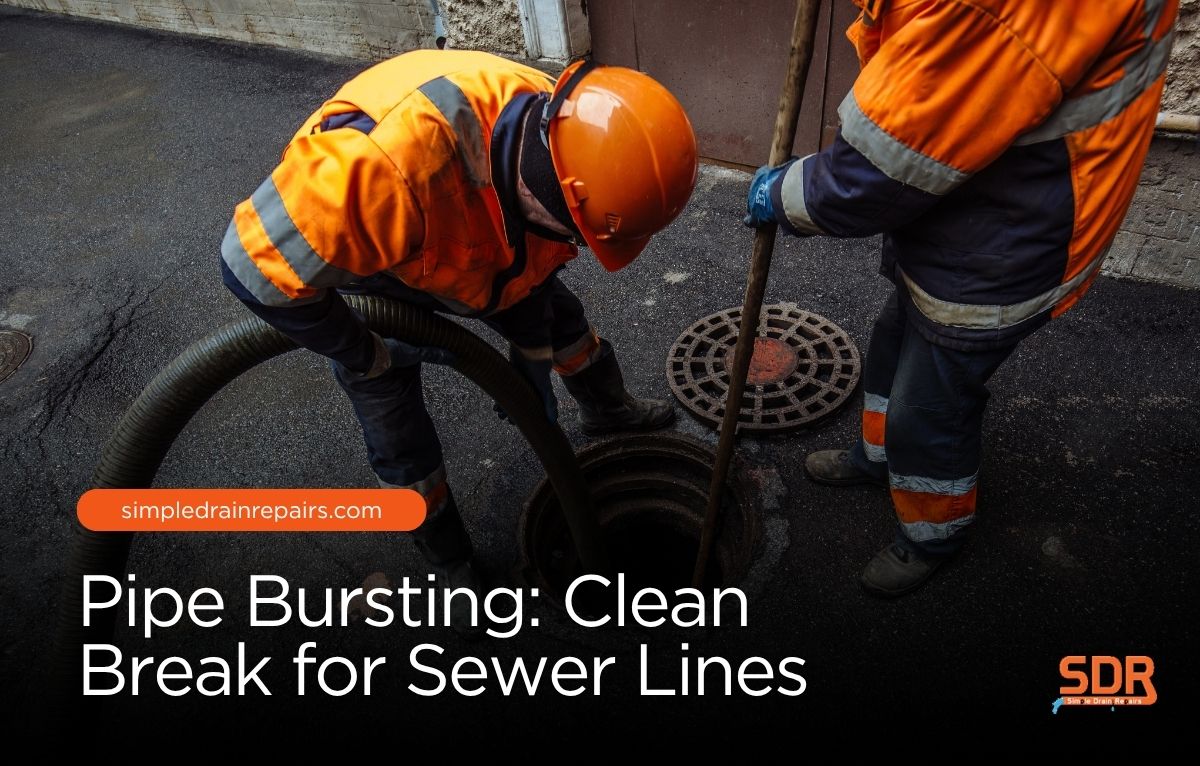
Few things disrupt a home or commercial space like a broken sewer line. When pipes collapse or suffer severe damage, property owners are left with a major problem and often assume the fix will involve excavation, days of work, and a big restoration bill.
But modern plumbing offers a faster, less invasive solution. It’s called pipe bursting, and it delivers a full replacement without the usual destruction.
Instead of digging trenches or tearing up flooring, this method uses specialized equipment to break apart the damaged pipe while simultaneously pulling a new pipe into place.
The result is a smooth, long-lasting line installed through minimal access points.
For many, pipe bursting has become the go-to method for full pipe replacement in situations where repair is no longer enough.
Older methods of pipe replacement involve exposing the entire line. This often means digging through yards, driveways, and even parts of the interior.
It creates a mess, takes days to complete, and brings extra costs when the job is done, from restoring landscaping to redoing concrete or flooring.
In commercial settings, the problem is multiplied. Business operations may have to stop completely while crews work to dig, replace, and restore. Residential properties deal with unusable bathrooms or kitchens, and sometimes limited access to the building entirely.
The interruption alone can be more expensive than the plumbing work itself.
Pipe bursting removes the existing pipe by fracturing it underground and replacing it with a new, high-density polyethylene (HDPE) line.
It starts with a camera inspection to confirm the condition and layout of the failing pipe. After cleaning and preparing the line, two access pits are dug: one at the start and one at the end of the segment.
A bursting head, attached to the new pipe, is fed into the old line.
As it moves forward, it breaks apart the damaged pipe and clears space. The new pipe is pulled into position behind it, forming a continuous, joint-free line.
Because only entry and exit pits are needed, the surface remains almost completely untouched. This makes the method ideal for areas with hardscaping, concrete, limited access, or finished interiors.
This method is often recommended when pipes are too far gone for lining. If a pipe is collapsed, heavily corroded, or suffering from extensive root intrusion, patching or sealing is no longer viable. Total replacement becomes the best option.
Pipe bursting is commonly used in these situations:
For homes with patios, paved driveways, or finished basements, this approach keeps the structure and aesthetics intact.
Some believe pipe bursting is only used in commercial settings, but it’s highly effective in residential applications too. It adapts well to many types of properties and line sizes.
There’s also the idea that it only works on certain pipe materials. While there are limitations, pipe bursting has been used to replace clay, cast iron, Orangeburg, and other common systems. As long as the pipe path can be accessed at both ends, it’s a strong candidate.
Another misconception is that this method is more expensive than trench-based replacement. While the initial quote may be similar, the cost savings often show up in what isn’t needed after the work is done, like repaving or replanting.
Property owners who choose this method often see a faster, cleaner, and more durable solution. Here’s why:
These factors make it easier to commit to full replacement when the situation calls for it, especially when time and access are limited.
The process begins with a consultation and video inspection to assess the damage. Once confirmed, the crew outlines the pipe path and identifies the ideal spots for the two access pits.
Cleaning and prep follow, ensuring the path is clear of debris and ready for the burst.
Once the equipment is set, the actual bursting and pipe installation move quickly. A final camera check confirms everything is in place and functioning.
From start to finish, pipe bursting projects are usually completed in one day. Water service may be off temporarily, but is restored the same day in most cases. Clean-up is minimal since there’s very little surface disturbance involved.
Not every situation allows for minor fixes. Some pipe systems need a full replacement to function correctly again. Pipe bursting offers a way to get that done without weeks of mess or thousands spent on property repair.
It’s a modern solution for a major problem, one that delivers strength, speed, and simplicity. For property owners looking to replace a failed drain or sewer line, it’s worth asking about pipe bursting as an option.
At Simple Drain Repairs, we handle pipe bursting projects with precision and planning. Serving homes and businesses throughout New Jersey, we make major sewer repairs less of a burden. Reach out today to learn if this method is right for your property.